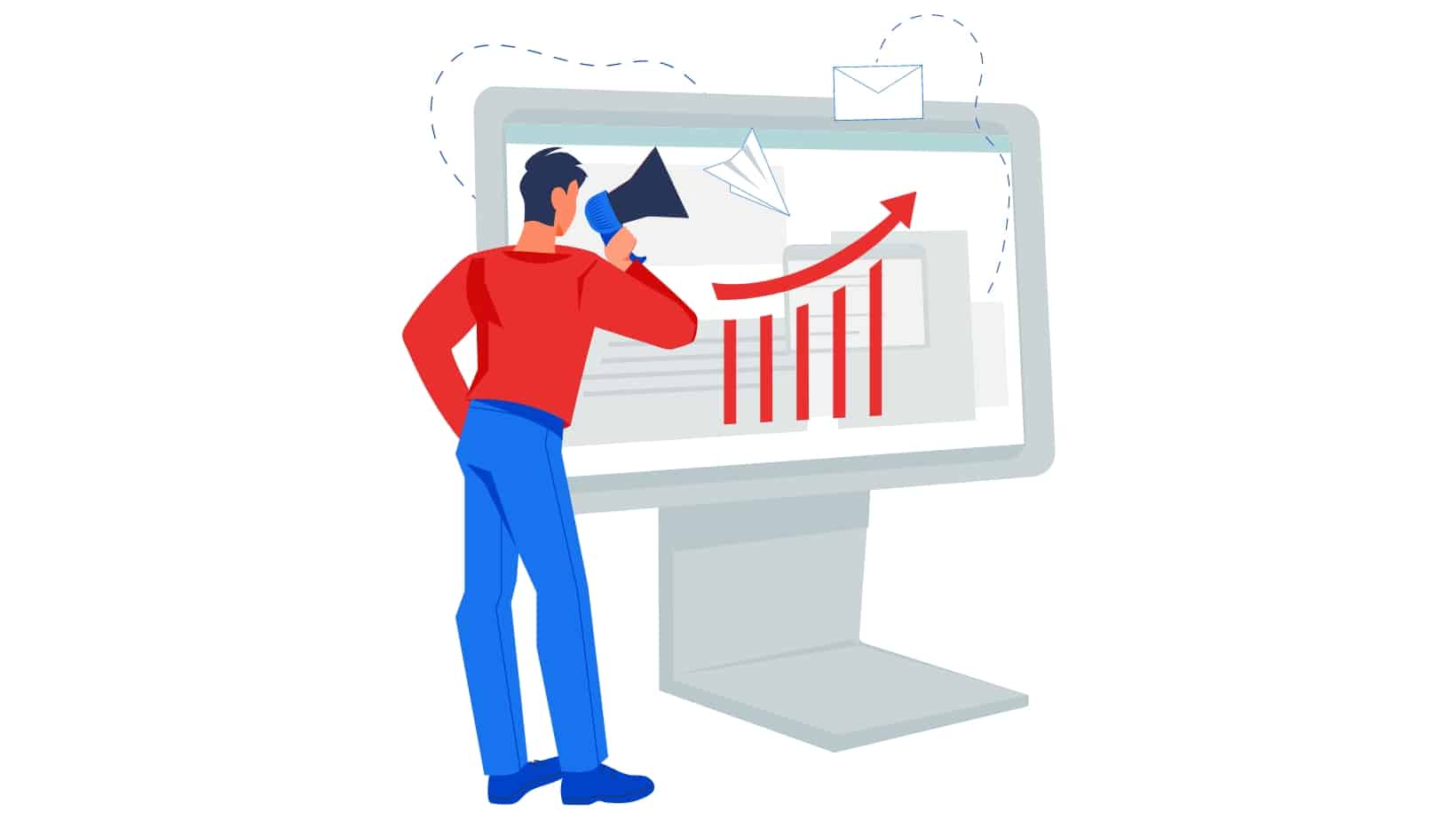Email marketing is a powerful tool for businesses to connect with their audience and drive sales. But with new technologies and changing consumer behaviors, staying current on the latest trends and predictions is essential.
In this guide, we’ll explore what’s in store for email marketing and how you can stay ahead of the curve.
Is Email Marketing Worth It?
Email marketing is a precious and effective strategy for businesses of all sizes.
Here are some reasons why it’s worth investing in:
- High Return on Investment (ROI): Email marketing consistently delivers one of the highest ROIs compared to other marketing channels. With relatively low costs, businesses can achieve significant returns by leveraging email to drive conversions and generate revenue. The ability to reach a large audience at a minimal cost contributes to its cost-effectiveness.
- Direct and Personalized Communication: Email allows businesses to communicate directly with their audience. By leveraging subscriber data and segmentation, companies can send personalized and targeted messages, ensuring relevance and resonating with recipients. This customized approach leads to higher engagement, increased click-through rates, and improved conversion rates.
- Wide Reach and Accessibility: Email has a broad reach, with billions of active email users worldwide. It is a universally accepted communication channel, making it accessible to people across different demographics and geographic locations. Additionally, the widespread use of smartphones and mobile devices ensures that people can access their emails on the go, allowing them to engage with recipients at their convenience.
- Relationship Building and Customer Retention: Email marketing is an excellent tool for building and nurturing customer relationships. Businesses can establish trust, foster loyalty, and increase customer retention by consistently delivering valuable content, exclusive offers, and personalized communication. Email allows for ongoing engagement, enabling enterprises to stay top-of-mind and maintain a strong connection with their audience.
- Measurable and Data-Driven: Email marketing provides robust analytics and tracking capabilities. Businesses can measure key performance metrics such as open rates, click-through rates, conversions, and revenue generated. This data-driven approach allows for continuous optimization and improvement of email campaigns, ensuring businesses make informed decisions based on actionable insights.
- Automation and Scalability: Email marketing automation allows businesses to streamline communication processes and scale their efforts. With automation tools, companies can set up email sequences, triggered messages, and personalized workflows based on user behavior or specific events. This automation saves time and resources while ensuring the right message is delivered to the right audience at the right time.
- Integration with Other Marketing Channels: Email marketing integrates seamlessly with other marketing channels, reinforcing the overall marketing strategy. It can drive website traffic, promote content, support social media campaigns, or complement other advertising efforts. By utilizing email as part of an integrated marketing approach, businesses can achieve a cohesive and consistent brand presence across various channels.
In conclusion, email marketing offers a range of benefits, including a high ROI, direct and personalized communication, broad reach, relationship building, measurability, automation, and integration with other marketing channels.
By leveraging these advantages, businesses can effectively engage their audience, drive conversions, and cultivate long-term customer relationships, ultimately leading to business growth and success.
Email Marketing Trends and Best Practices
Here are tips on email marketing trends and best practices:
- Personalization: Tailor emails to recipients based on preferences and demographics.
- Interactive Elements: Use polls, quizzes, or GIFs to boost engagement.
- Mobile Optimization: Ensure emails are mobile-friendly and responsive.
- AI and Automation: Leverage AI and automation for efficiency and relevance.
- User-Generated Content: Feature customer reviews and testimonials.
- Minimalistic Design: Opt for clean and visually appealing layouts.
- A/B Testing: Experiment with subject lines, layouts, and CTAs.
- Data Privacy and Compliance: Ensure compliance with regulations.
- Email Deliverability: Maintain a good sender reputation.
By implementing these practices, businesses can enhance email marketing effectiveness and engagement with their audience.
Future of Email Marketing
The future of email marketing includes hyper-personalization, interactive content, automation, advanced segmentation, AI and predictive analytics, mobile optimization, enhanced data privacy, and integration with omnichannel marketing.
These trends will enhance engagement and deliver a more tailored and seamless customer experience.
Personalization Will Become Even More Important
As consumers increasingly inundate with marketing messages, personalization will become even more crucial for email marketers. Studies have shown personalized emails have higher open and click-through rates than generic ones.
In the future, we can expect to see even more advanced personalization techniques, such as dynamic content that changes based on the recipient’s behavior or preferences.
Marketers prioritizing personalization can reduce the noise and build stronger relationships with their subscribers.
Interactive Email Content Will Become More Prevalent
We can expect more interactive email content like quizzes, surveys, and polls.
This type of content engages the recipient and provides valuable data for the marketer.
Interactive content allows marketers to gather information about their subscribers’ preferences and interests, which can be used to personalize future emails.
Additionally, interactive content can help increase click-through rates and drive conversions.
As email marketing becomes more competitive, incorporating interactive content will be crucial to stand out and engage subscribers.
Mobile Optimization Will be a Must
With more and more people accessing their emails on mobile devices, email marketers must optimize their content for mobile viewing.
This means using a responsive design to ensure emails are easily readable and navigable on smaller screens.
It also means considering the mobile user experience when designing email campaigns, such as using shorter subject lines and including clear calls-to-action that are easy to tap on a touchscreen.
As mobile usage grows, failing to optimize for mobile could mean missing out on a significant portion of your audience.
Artificial Intelligence Will Play a Bigger Role in Email Marketing
Artificial intelligence (AI) is becoming more prevalent in email marketing as technology advances.
AI can help marketers personalize content, predict customer behavior, and automate specific tasks. For example, AI can analyze customer data to determine the best time to email or suggest personalized product recommendations based on past purchases.
As AI technology continues to improve, we’ll likely see even more innovative uses for it in email marketing in the future.
Email Automation Will Continue to Grow in Popularity
Email automation has become more sophisticated and effective with the rise of AI technology.
Automated emails can be triggered by specific actions or behaviors, such as a customer abandoning their shopping cart or signing up for a newsletter. This allows marketers to send targeted and personalized messages to their audience, increasing engagement and conversions.
As more businesses adopt email automation, we’ll likely see even more advanced features and capabilities in the future.


